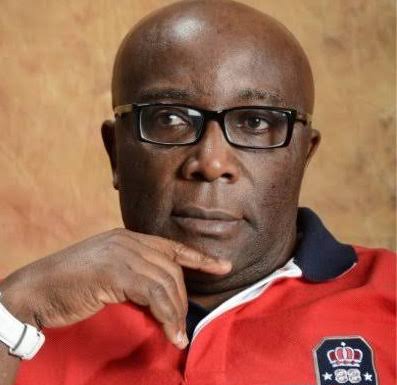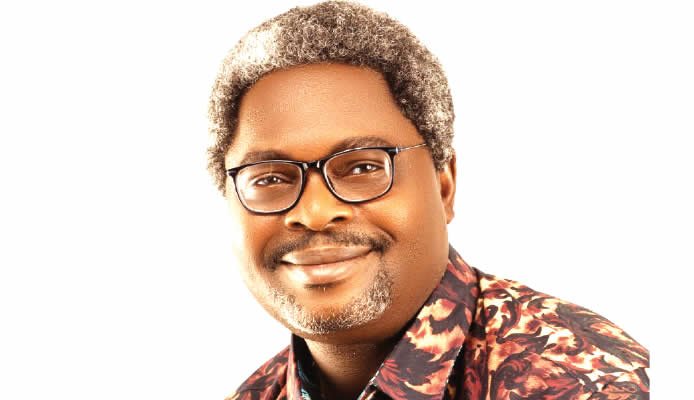The anxiety preceding Nigeria’s hunger protests highlights the government’s warlike preparations against citizens protesting economic hardship. The protests expose the fragile state of democracy in the Third World, raising questions about governance and public trust in President Tinubu’s administration, says the author.
The anxiety preceding the hunger protests was palpable. Officialdom’s dress rehearsals were warlike. The government unleashed all attack dogs to frighten off the planners of an over-popularized nationwide protest wrongly captioned #EndBadGovernance. A nationwide protest without specific demands will fizzle in futility once the government disperses the mobs.
Nonetheless, the militant dress rehearsal approached the dimension of war preparation. And to think that the entire preparation for this war was aimed at the same people who, a few months earlier, had been begged and cajoled to troop out and vote for this “Renewed Hope” regime raises many questions about the true origins and meaning of democracy especially in the Third World. One of the mascots of the season, Senate President Godswill Akpabio, taunted the people with a cruel joke just before the protest date: “We will be eating while you are protesting”!
The entire war-making apparatus of the state was invoked and kept on standby. The police did what it does best: threaten people with a brutal clampdown. The secret police was in its usual elements: uncovering plots, weaving familiar conspiracy theories, and sometimes, conducting preemptive arrests of suspected troublemakers. The impression went out that the government was preparing for a full-scale war against an external adversary rather than seeking to engage and assuage a populace that was facing unprecedented hunger, hardship, and deprivation. The dark face of a bloodthirsty monster has replaced the compassionate face of an elected government.
“that The entire preparation Against This protest was aimed at the same people who, a few months earlier, had been begged to vote for this regime, raises many questions about the true origins and meaning of our democracy.”
In fairness, some public figures tried to address hunger at a populist elementary level. The First Lady was reported to have handed out bags of rice to groups of women in Ibadan, just as the federal government reportedly began mass sales of bags of rice at N40,000 a piece just as the presidency was announcing a cash bonanza of N50,000 to each of 10,000 Niger Delta youths ostensibly at the behest of Mr. Asari Dokubo, famous Niger Delta professional thuggery contractor.
Some regime troublemakers went around threatening innocent people with violence and mayhem. Rented thugs went around Lagos, threatening innocent people with violent visitations, arson, and mayhem if they dared join the hunger protest. Some phantom traditionalists in Lagos quickly concocted a sudden Oro festival to take place the night preceding the day of the planned protests. In Imo State, hired gunmen attacked innocent law enforcement and other people, killing some to warn others against participating in the planned protests.
A diversity of masked groups came into being, parading their legitimate rights to protest against the protests and protesters. Reportedly, an emergency business of protest contracting sprang to life as politicians handed out various sums of cash to groups to stage counter-protests and plead the case of the Tinubu government.
The judiciary was not left out in the dress rehearsals. The government and its agents rushed to courts to file suits and get injunctions restricting protests to some controlled enclosures like parks, gardens, stadia, etc.
The protests have kicked off. On the first day, a few arrests have been made. Quite a few people have been shot to death. Some warehouses have been looted, and property destroyed. In a few remarkable instances, the protesting mobs have breached the cordon of police and military security to dare officialdom. In one remarkable instance, protesters trooped to the home of former president Muhammadu Buhari, seeking answers to the beginnings of the present hardship, which many place squarely in his footsteps. No one knows where he was when the visitors came calling and what he will eventually tell them when he encounters them.
Though still in its early stages, the protests have raised several troubling concerns. The most momentous episodes have taken place in the northern urban centers of the country. This is despite earlier politically induced opposition to the protests by organized northern youth groups. The pattern of seriousness of the protests in the north is reflective of the statistical reality that the northern states contain some of Nigeria’s poorest populations. If the political elite of the region is sensitive to the plight of these people, the protests ought to show them clearly where the crisis of hunger and poverty lies in the country.
The relative seriousness of the protest in Abuja is a different message. Abuja is the crucible of our national portrait. The conscious elite, the masses of ordinary folk who just want to get by, the concentration of a detribalized and nationalized population is in Abuja. Ethnic bigots, religious zealots, and professional thugs hardly have a dominating presence here. Abuja people could be driven by the idealism of national unity and equality of opportunity, which lay behind the creation of the city. The consciousness of civil and democratic rights can be expected to be at its highest in Abuja, hence the point of engagement of the Abuja protesters with law enforcement agents. Also, there is the unstated reality that Abuja is the home of international diplomatic presence in Nigeria. The police and security people have no choice but to behave themselves when handling the Abuja protesters.
“When the mob troops out all over the country to demand an end to bad governance, it is a clear verdict on the administration.”
Lagos is a different matter at this moment. It is the home base of President Tinubu. But it is also Nigeria’s most cosmopolitan city, the home of commerce and big business. In their response to the protest, we can see the tightrope that Lagosians have to walk between the libertarian essence of modern life and the home base of a political supremo. The experience of the 2023 presidential elections in which Mr. Peter Obi trounced Tinubu in Lagos remains fresh. Thuggery, violence, and creative election tallying were deployed to neutralize the political tsunami of 2023 from sweeping off Governor Sanwo-Olu. A variant of this combination was used to secure a peaceful protest this time around. The Lagos protesters sent home their message without the feared violence and mayhem.
This time around, the Lagos message included the need to send home the message to Mr. Tinubu that Nigeria, under his watch, is in severe disrepair. Of course, he retains the political support of the South West.
Easily, the most problematic national question that the pattern of this protest has raised is the position of the Igbos of the South East as a nationality in Nigeria. In the run-up to the protests, Mr. Bayo Onanuga, Tinubu’s spokesman, accused Mr. Peter Obi of the Labour Party of solely inspiring the protests with the support of IPOB and the Igbos as a nationality. Mr. Obi and the political and opinion leaders of the South East denied this spurious and reckless charge. This led to a slew of campaigns by Igbo leaders on the need for the Igbo all over Nigeria to protest themselves and their assets from those who might hide under the protests to assault them or loot their properties. In the immediate run-up to the protests, Igbo political and opinion leaders pointedly ordered no protests in any of the five South East states. Instead, the protest days were observed as “sit at home” days to ensure peace and calm all over the zone. This was obeyed to the letter. There was no protest anywhere in the South East. On his part, Mr. Peter Obi, who has never presented as an Igbo leader but rather a detribalized national leader and believer in the best democratic principles, went out to join the protests.
The distancing of the Igbo from the protests and similar nationwide expressions of belonging to Nigeria has recently presented a picture of ethnic isolation. This is in response to what has become the systemic alienation and marginalization of the Igbo from the mainstream of national affairs. This is unfortunate.
We cannot build a truly united nation by creating and sustaining a culture of conscious alienation of any group from the mainstream of national affairs. We have gradually created a psychology of “otherness” among the Igbo from the rest of the national society. It remains doubtful whether the task of democratic governance of Nigeria can proceed in an atmosphere of conscious and orchestrated divisiveness. Both Buhari and Tinubu have converted this isolation psychology into an informal philosophy of state policy.
“The president needs to embrace the republican culture of constitutional democracy instead of carrying on like a typical African emperor president.”
Over and above matters of sectional consideration, the protests have tremendous significance for Mr. Tinubu’s presidency and Nigerian democracy. Whichever way the ongoing protests end, they have delivered yet another verdict on the administration in its first year. When the mob troops out all over the country to demand an end to bad governance, it is a clear verdict on the administration. The Tinubu administration is negatively marked. It is doubtful how it can redeem its image and inspire hope and confidence in people who have passed a verdict.
At the level of presidential responsibility, Mr. Tinubu has so far failed in this protest. He should have addressed the nation, appealed to the populace, and tried to engage the people. But more like his predecessor, he has maintained an arrogant aloofness and worrying silence during a national emergency.
Even then, the administration must rise above its immediate challenges to retool its approach. Tinubu needs a more serious cabinet and an inner core of thinkers instead of politicians and debt collectors. He needs to reach out and spread out to the rest of the nation and free himself from the embrace of ancestry, which has made his administration a narrow, ethnocentric collective of friends and relations. More importantly, the president needs to embrace the republican culture of constitutional democracy instead of carrying on like a typical African emperor president.-END-
The opinions expressed in this article are strictly those of the author, and does not necessarily align with the views of JolibaLive News! or any of its staff members. The author is in no way associated with this online news blog.
Comment, Like 👍, share this article, and Follow us on our social media handles.







